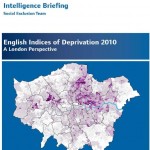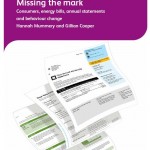Site search:
-
What’s new?
Energy for London Tags
Brent Buildings Camden Carbon Emissions CHP Cities Climate Adaptation Community Heating Community Initiatives Croydon Data DECC Decentralised Energy Distribution ECO Energy Costs Energy Efficiency Enfield FIT Fuel Poverty Funding Green Deal Hackney Haringey Housing Islington Lambeth Library Local Authorities Mayor Newham Ofgem Olympics Photovoltaics Planning RE:FIT RE:NEW Renewable Energy Retrofit Southwark Tower Hamlets Transport Waltham Forest Waste WestminsterEnergy Archives:
- February 2021 (1)
- January 2021 (15)
- December 2020 (15)
- November 2020 (9)
- October 2020 (3)
- August 2020 (5)
- July 2020 (3)
- June 2020 (4)
- April 2020 (10)
- March 2020 (5)
- February 2020 (2)
- January 2020 (3)
- October 2019 (1)
- September 2019 (4)
- August 2019 (2)
- July 2019 (1)
- August 2018 (1)
- November 2016 (8)
- October 2016 (8)
- September 2016 (2)
- August 2016 (8)
- July 2016 (14)
- April 2016 (12)
- March 2016 (16)
- February 2016 (8)
- January 2016 (4)
- December 2015 (1)
- November 2015 (1)
- October 2015 (16)
- September 2015 (3)
- June 2015 (1)
- May 2015 (1)
- April 2015 (1)
- March 2015 (1)
- February 2015 (1)
- January 2015 (1)
- December 2014 (18)
- November 2014 (4)
- August 2014 (8)
- July 2014 (7)
- June 2014 (25)
- May 2014 (8)
- April 2014 (4)
- March 2014 (12)
- February 2014 (7)
- January 2014 (13)
- December 2013 (11)
- November 2013 (15)
- October 2013 (15)
- September 2013 (18)
- August 2013 (5)
- July 2013 (20)
- June 2013 (33)
- May 2013 (8)
- April 2013 (16)
- March 2013 (25)
- February 2013 (14)
- January 2013 (20)
- December 2012 (23)
- November 2012 (23)
- October 2012 (25)
- September 2012 (14)
- July 2012 (12)
- June 2012 (43)
- May 2012 (20)
- April 2012 (8)
- March 2012 (40)
- February 2012 (39)
- January 2012 (40)
- December 2011 (22)
- November 2011 (40)
- October 2011 (33)
- September 2011 (48)
- August 2011 (40)
- July 2011 (58)
- June 2011 (41)
- May 2011 (80)
- April 2011 (38)
- March 2011 (33)
- February 2011 (25)
- January 2011 (24)
- December 2010 (3)
- November 2010 (7)
- October 2010 (6)
- September 2010 (7)
- August 2010 (1)
- July 2010 (2)
- June 2010 (4)
- May 2010 (1)
- March 2010 (3)
- February 2010 (3)
- December 2009 (5)
- November 2009 (2)
- October 2009 (3)
- July 2009 (3)
- June 2009 (1)
- April 2009 (1)
- March 2009 (1)
- February 2009 (1)
- January 2009 (1)
- December 2008 (2)
- October 2008 (1)
- September 2008 (1)
- July 2008 (1)
- March 2008 (2)
- January 2008 (2)
- October 2007 (1)
- September 2007 (3)
- July 2007 (1)
- March 2007 (1)
- February 2007 (3)
- November 2006 (3)
- August 2006 (1)
- February 2006 (1)
- May 2005 (1)
- February 2004 (1)
Monthly Archives: June 2011
Belvedere Incinerator Briefing Note
14 June 2011: Note of Bexley Council’s Environment Committee’s visit to the Belvedere Incinerator. The note provides the following information: “Testing of the [66MW] turbine is still under way and it is anticipated it will be fully functioning by the end of May 2011. ..Members discussed the potential for the facility to become acombined heat and power plant. It was reported that the site was built to have the capability to provide heat to a local facility such as hospital if there such demand and Cory Environmental would be keen to explore such an opportunity should it arise.”
Bexley gives go ahead to large solar project
10 June 2011: News report from solarportal.co.uk that “the Business Academy Bexley has been given the green light for the installation of a 558.6kW system that will generate around 45% of the electricity used by the Academy, cutting an estimated £46,790 off its annual £104,700 electricity bill and reducing its carbon footprint by 457 tonnes a year. The unanimous decision by Bexley Council’s Planning Committee on 9 June followed its planning officer’s recommendation. Work on installing the solar farm, which will cover an area nearly three times the size of the football pitch at Wembley Stadium, is expected to start within days and to be completed by the end of July, meaning it will beat the upcoming feed-in tariff cuts.” Full details on the scheme are set out in developers application to the Council and Bexley’s report to the Planning Committee (report item 7a) .
Posted in News, Renewable Energy
Tagged Bexley, FIT, Photovoltaics, Planning, Renewable Energy, Schools
Leave a comment
Housing ‘eco-retrofit’ completes
13 June 2011: Gifford engineers have completed a comprehensive retrofit project in Harrow that will now be monitored to see how effectively the country’s existing housing stock can be converted into energy efficient homes to achieve deep cuts in carbon emissions.
“A whole house solution for everyday living” has been delivered by Gifford’s Sustainability Team at a 1960s semi-detached house in Harrow, North West London. The team designed a number of energy efficiency measures for the property, including super insulating the building envelope and sealing it to reduce heat loss, a ventilation system coupled with heat recovery, low energy lighting with specialist LED fittings, solar thermal panels, a room-by-room control system and a ‘last man out’ switch to stop appliances being left on stand-by. Read more here.
Posted in Energy Efficiency, News
Tagged Energy Efficiency, Harrow, Housing, Retrofit
Leave a comment
Housing: A Growing City
 June 2011: GLA report looking at housing trends in London, from the demand/supply imbalance to the consequences for affordability and housing need.
June 2011: GLA report looking at housing trends in London, from the demand/supply imbalance to the consequences for affordability and housing need.
Indices of Deprivation 2010 – A London Perspective
 June 2011: Greater London Authority briefing on the key findings for London from the CLG Indices of Deprivation 2010 (ID2010), the Government’s primary measure of deprivation for small areas in England. The most deprived areas within London are concentrated to the north and east of the City, from Newham to Islington and from Tower Hamlets north to Enfield and Waltham Forest. Over 26 per cent of London falls within the most deprived 20 per cent of England.
June 2011: Greater London Authority briefing on the key findings for London from the CLG Indices of Deprivation 2010 (ID2010), the Government’s primary measure of deprivation for small areas in England. The most deprived areas within London are concentrated to the north and east of the City, from Newham to Islington and from Tower Hamlets north to Enfield and Waltham Forest. Over 26 per cent of London falls within the most deprived 20 per cent of England.
C40 Research on Importance of Cities to Climate Change
 1 June 2011: The C40 Cities Climate Leadership Group (C40) released two reports today that emphasize the critical role of measurement and transparency in tackling climate change in megacities.
1 June 2011: The C40 Cities Climate Leadership Group (C40) released two reports today that emphasize the critical role of measurement and transparency in tackling climate change in megacities.
- A measurement baseline – The first‐ever public disclosure and analysis of self‐reported community‐wide greenhouse gas emissions (GHG) data from C40 cities, showing the urban concentration of GHG emissions and climate‐related risks, highlighting the importance of City government action to reduce emissions (report by the Carbon Disclosure Project)
 A benchmark of actions C40 Cities have taken to date and an inventory of powers Cities hold over sectors, demonstrating what actions have been taken across the C40 Cities and also identifying what powers City governments across the C40 have to take further actions on mitigation and adaptation. (report by Arup)
A benchmark of actions C40 Cities have taken to date and an inventory of powers Cities hold over sectors, demonstrating what actions have been taken across the C40 Cities and also identifying what powers City governments across the C40 have to take further actions on mitigation and adaptation. (report by Arup)
DECC regional energy statistics
8 June 2011: Latest release of DECC regional energy (gas/electricity) domestic and non-domestic consumption statistics including detailed data for London.
- Middle Layer Super Output Area (MLOSA) non-domestic electricity estimates 2009: All data
A spreadsheet containing all MLSOA data for non-domestic electricity estimates in 2009.
- Middle Layer Super Output Area (MLOSA) domestic gas estimates 2009: All data
A spreadsheet containing all MLSOA data for domestic gas estimates in 2009.
- Middle Layer Super Output Area (MLOSA) non-domestic gas estimates 2009: All data
A spreadsheet containing all MSLOA non-domestic gas estimates for 2009.
- Lower Layer Super Output Area (LLSOA) domestic electricity estimates 2009: All data
A zip file containing the LLSOA raw data for domestic electricity estimates in 2009 (976.71 Kb)
- Lower layer Super Output Area (LLSOA) domestic gas estimates 2009: All data
A zip file containing LLSOA data for domestic gas estimates in 2009 (621.85 Kb)
Institute of Fiscal Studies Winter Fuel Payments Research
8 June 2011: Two papers published today (link to press release) by the Institute for Fiscal Studies show that:
- Households receiving the winter fuel payment are almost 14 times as likely to spend the money on fuel than would have been the case had their incomes been increased in other ways;
- But in very cold weather it remains the case that the poorest pensioners cut back on spending on food to finance the additional cost of heating their homes.
IFS reports Cash by any other name? Evidence on labelling from the UK Winter Fuel Payment and Is there a “heat or eat” trade-off in the UK?
Is there a “heat or eat” trade-off in the UK?
8 June 2011: Institute for Fiscal Studies (IFS) research presents detailed household level expenditure data from older households merged with historical local weather information. The report looks to test “whether there is a a heat or eat trade off: do households cut back on food spending to finance the additional cost of keeping warm during cold shocks? We find evidence that the poorest of older households are unable to smooth spending over the worst temperature shocks.”
London: Garden City?
 8 June 2011: A study by the London Wildlife Trust revealing that London’s gardens – which make up nearly a quarter of Greater London – are changing from green to grey. These losses have implications for London’s wildlife and our ability to adapt to the impacts of climate change. A summary of the report, London:Garden City?, is available here.
8 June 2011: A study by the London Wildlife Trust revealing that London’s gardens – which make up nearly a quarter of Greater London – are changing from green to grey. These losses have implications for London’s wildlife and our ability to adapt to the impacts of climate change. A summary of the report, London:Garden City?, is available here.
Emissions rise at UK universities
7 June 2011: The People & Planet Green League 2011 assessed the environmental and ethical performance of 142 universities, and has estimated that carbon emissions at 139 universities rose by 3.9% between 2005 and 2010, even though capital funding for English institutions is now linked to reductions.
Missing the Mark – consumers, energy bill, annual statements and behaviour change
 7 June 2011: A new report from the Consumer Focus entitled ‘Missing the Mark – consumers, energy bill, annual statements and behaviour change’ (see bottom of page for link). This looks at the role of information on consumers’ bills and annual statements and the potential this has to help consumers. The research identifies a number of limitations in the effectiveness of this information in nudging behavioural change in consumers.
7 June 2011: A new report from the Consumer Focus entitled ‘Missing the Mark – consumers, energy bill, annual statements and behaviour change’ (see bottom of page for link). This looks at the role of information on consumers’ bills and annual statements and the potential this has to help consumers. The research identifies a number of limitations in the effectiveness of this information in nudging behavioural change in consumers.

